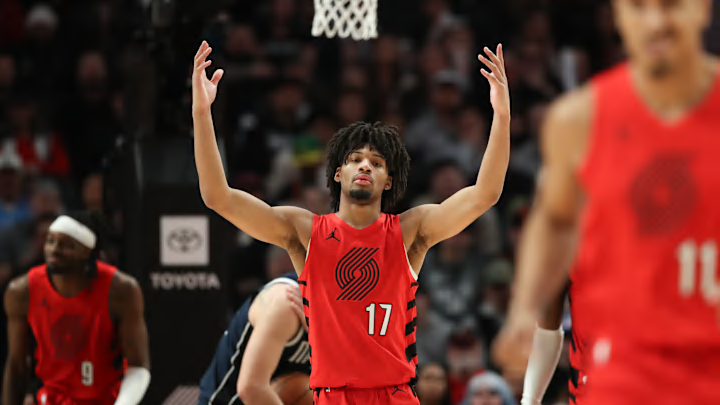Intro
NBA contracts are based on comps -- that is, comparative elements. When negotiating a new contract, a player's agent points at a similar player and says "my client is like this player, so they should get this much" or, perhaps more commonly, "this player is making this much, and my client is clearly better than them."
NBA front offices can fire back in a similar way; "we love this player, but they haven't done this thing yet, and there is a player who did that thing making so much. Our offer is therefore less than that." And around and around they go.
The Golden State Warriors are currently locked in a painful and protracted contract negotiation with restricted free agent Jonathan Kuminga. The two sides could not come to an agreement ahead of time, and now that the decision point has come, neither side is particularly close on Kuminga's value.
In large part, that is because it is still unclear how valuable of a player Kuminga is. On the one hand, he is a hyper-athletic forward who has proven he can score points in bunches. On the other, he doesn't shoot, pass or defend with consistency to the level you expect from a winning player. Is his scoring empty calories? Will the little things come around?
The longer these negotiations play out, and if Kuminga is forced to capitulate or take the qualifying offer, it sets the market on players of this ilk. NBA teams will realize they don't have to "pay for points" but can negotiate harder with players who have proven they can score but haven't proven the rest yet.
Unfortunately for Shaedon Sharpe, he falls directly into that camp.
Shaedon Sharpe's market is falling
Three seasons into his career, Shaedon Sharpe has proven that he can score. He averaged 18.5 points per game last season, able to score off the dribble or off the catch when Scoot Henderson or Deni Avdija or even Dalono Banton created an advantage for him.
At the same time, he shot just 31.1 percent from 3-point range, had nearly as many turnovers per game as assists, and defensively was incredibly inconsistent despite his athletic gifts. The fact that he averaged just one block every five games is mind-boggling given his speed and vertical ability.
Sharpe is now eligible for a contract extension and can negotiate until October, at which point he will be propelled into restricted free agency and the nightmare that Kuminga is living out right now. Avoiding that compactor will likely push Sharpe to get a deal done now, but the Trail Blazers know that too and will use that leverage to set the bar at a lower number in extension talks.
If Sharpe signs an extension at a low number because that's what the market reflects after Kuminga's squeeze, then explodes into a 25-point per game scorer who does start to make an impact on defense, suddenly he is stuck at a below-market deal. At the same time, if he waits on an extension and has another score-only season with flashes of upside, he will be in trouble come next summer.
It's a difficult situation for both sides to navigate, but one thing is clear: what is playing out with Jonathan Kuminga is not good for Shaedon Sharpe.
